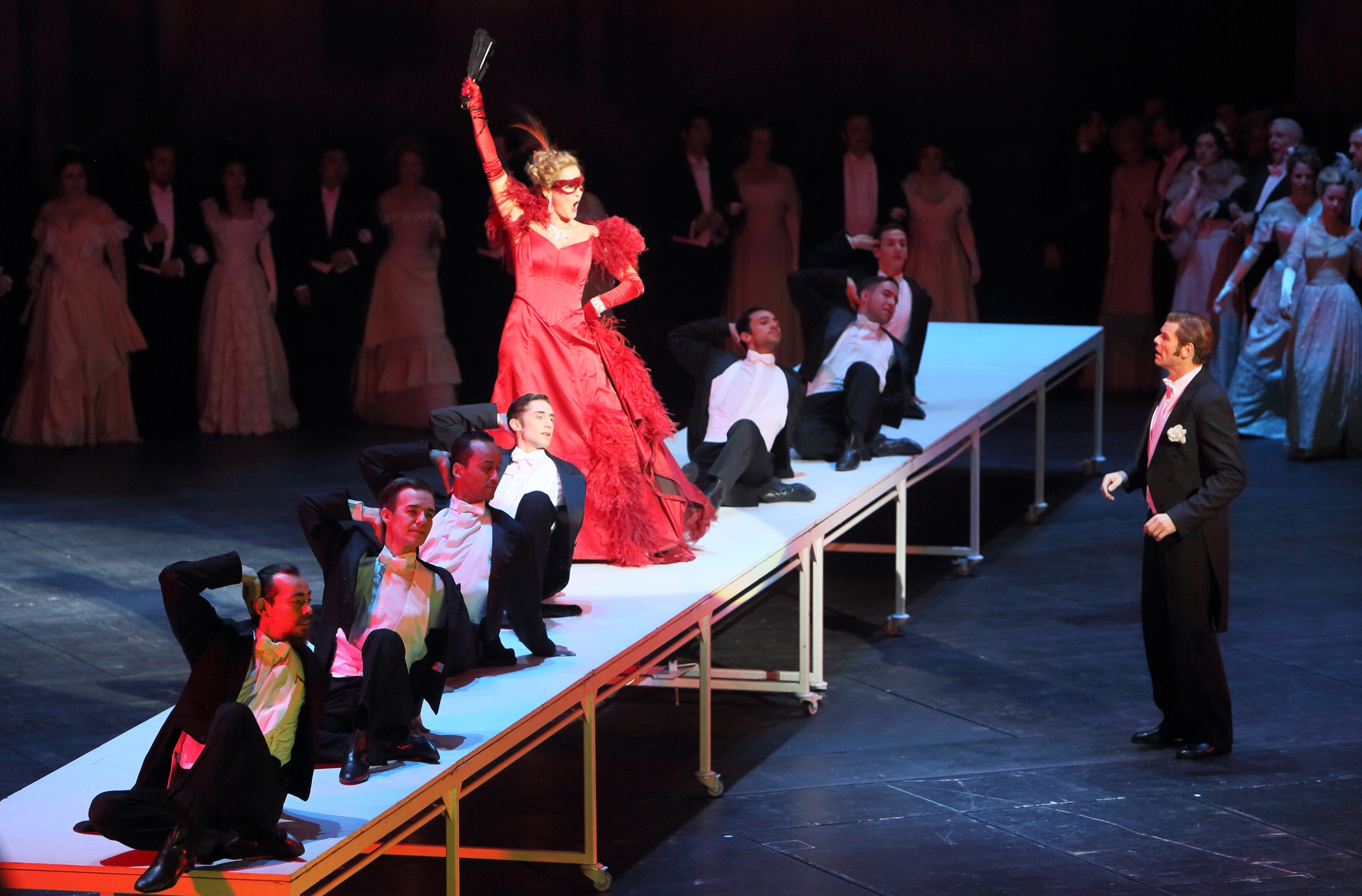Coming from the States, the Midwest to be precise, the city of Munich is very friendly to its English speaking visitors. Having attended other opera houses similar to its stature, I was surprised that they did not offer English subtitles or devices as other establishments have. As my German was sub-par, I found myself in a predicament for this production of Fledermaus by Strauß. This was a statement that Munich values its operas and arts extremely and it is the viewers duty to come prepared, whether that be knowing the language or knowing the libretto in your mother tongue before arriving. I associated it with a strain of nationalism.
Unfamiliar with the libretto and details of the story, this perked up my other senses and for this production of Fledermaus I found myself intently focusing on the musical and visual elements. When I found my seat and the chandelier rose, I was overwhelmed with an intense warmth from the overture, conducted by Friedrich Haider, with the texture of the red velvet curtain within my eye level gaze. I couldn’t help but smile with the light-hearted melodies Strauß gives and the expressive execution from the orchestra. This continued throughout the evening. My only critique was casual timing mistakes when the singers joined later on throughout the night. It was prevalent that the orchestra played as one being, but had yet to establish this sense of timing with the singers.
The maid Adele, played by Sofia Fomina was the most enjoyable singer. Her wit and charm through her character and voice took liberty in her arias and recitative that enticed me to love her more. Annette Dasch as Rosalinde was also quite delightful, but occasionally her voice would not power over the orchestra to be heard for various lines.
What really made the crowd perk up and laugh was the performance by a Bavarian trio troupe, called „Die Well-Brüder aus’m Biermoos“, which showed up as special guests on the big party Prinz Orlofski (very well done by Okka von der Damerau) celebrates in the second act. They entered on a tractor playing a cacophony of three alpine horns which lead to the orchestra lifting up instruments from their pit for them to play. They danced, sang, and made laughs for everyone to comment on. Unfortunately, I missed out on intrinsic details for the jokes, but it was clear that they were making quite a stir.
The same joyous laughter came from Gerhard Polt, who played the old jail assistant Frosch superbly. He sloshed around the set as if to be drunk and played witty banter with the character Alfredo (Galeano Salas) from his cell.
The production of the piece (Andreas Weirich) was always surprising. It kept my interest when elaborate sets, mostly in the style of late 19th century, would shift to even more elaborate sets, a gold ring descended from above, a gun was fired, a tractor entered, and the exciting list goes on. The opera ballet troupe, also as guests at Orlofski’s party, was full of life in the choreography they were given. However, being very different from one to the other, it showed an array of movement backgrounds coming through each individual with different levels of execution. Definitely they performed with gusto and enthusiasm. I did question why the Bavarian State Ballet did not be a part of a production like this. The choreography was simple and effective and could easily have been done by second company members in a matter of hours. I can only conclude that schedules may have been a factor.
All in all, this whole production was delightful to see and for the American I am, it helped keep my interest and it was executed flawlessly. „Fledermaus“ and the precious opera house of Munich met my expectations given to it from the world. It was an extravagant event any German, American, or visiting friend should see.
